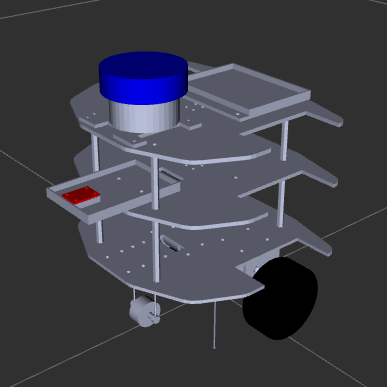C++ 표준 템플릿 라이브러리 컨테이너 소개
#include <.vector> #include <.deque> #include <.set> #include <.map> #include <.string> #include <.stack> #include <.queue>
sequence_containers [ vector, deque ]
1
2
3
4
5
6
7
8
9
10
11
12
13
14
15
16
17
18
19
20
21
22
23
24
25
26
27
28
29
30
void sequence_containers()
{
// #include <vector>
{
vector<int> v;
for(int i=0; i < 10; i++)
v.push_back(i);
for(auto &el : v)
cout << el << " ";
cout << endl;
// 0 1 2 3 4 5 6 7 8 9
}
// #include <deque>
{
deque<int> dq;
for(int i=0; i < 10; i++)
{
dq.push_back(i);
dq.push_front(i);
}
for(auto &el : dq)
cout << el << " ";
cout << endl;
// 9 8 7 6 5 4 3 2 1 0 0 1 2 3 4 5 6 7 8 9
}
}
associative_containers [ set, map ]
1
2
3
4
5
6
7
8
9
10
11
12
13
14
15
16
17
18
19
20
21
22
23
24
25
26
27
28
29
30
31
32
33
34
35
36
37
38
39
40
41
42
43
44
45
46
47
48
49
50
51
52
53
54
55
56
57
58
59
60
61
62
63
64
65
66
67
68
69
70
71
72
73
74
75
76
77
78
79
80
81
82
void associative_containers()
{
// #include <set> 집합
{
set<string> str_set;
str_set.insert("Hello");
str_set.insert("World");
str_set.insert("Hello");
cout << str_set.size() << endl;
for(auto &el : str_set)
cout << el << " ";
cout << endl;
// 2
// Hello World 같은 원소는 추가하지 아니함.
}
// multiset : duplication is allowed
{
std::multiset<string> str_set;
str_set.insert("Hello");
str_set.insert("World");
str_set.insert("Hello");
cout << str_set.size() << endl;
for(auto &el : str_set)
cout << el << " ";
cout << endl;
// 3
// Hello Hello World 같은 원소를 허락하고 묶어주는 듯 함.
}
// #inculde <map>
{
// key / value 가 존재함.
// json의 구조와 같다곤 함
// 알아서 정렬된 구조로 나옴
std::map<char, int> map;
map['a'] = 10;
map['b'] = 20;
map['c'] = 50;
cout << map['a'] << endl;
map['a'] = 100;
cout << map['a'] << endl;
for(auto &el : map)
cout << el.first << " " << el.second << " ";
cout << endl;
/*
10
100
a 100 b 20 c 50
*/
}
// multimap : duplicated keys
// 여러개의 키 값을 갖는다는 뜻 같음.
{
std::multimap<char, int> map;
map.insert(std::pair('a', 10));
map.insert(std::pair('b', 10));
map.insert(std::pair('c', 10));
map.insert(std::pair('a', 100));
cout << map.count('a') << endl;
for(auto &el : map)
cout << el.first << " " << el.second << " ";
cout << endl;
// 2
// a 10 a 100 b 10 c 10
// 마찬가지로 정렬되어 나옴
}
}
container_adapters [ stack, queue ]
1
2
3
4
5
6
7
8
9
10
11
12
13
14
15
16
17
18
19
20
21
22
23
24
25
26
27
28
29
30
31
32
33
34
35
36
37
38
39
40
41
42
43
44
45
46
47
48
49
50
51
52
void container_adapters()
{
// #include <stack>
{
cout << "Stack" << endl;
std::stack<int> stack;
stack.push(1); // push adds a copy
stack.emplace(2); // emplace constructs a new object
stack.emplace(3);
cout << stack.top() << endl;
stack.pop();
cout << stack.top() << endl;
// 3
// 2
}
// #include <queue>
{
cout << "queue" << endl;
std::queue<int> queue;
queue.push(1); // push adds a copy
queue.push(2); // emplace constructs a new object
queue.push(3);
cout << queue.front() << queue.back() << endl;
queue.pop();
cout << queue.front() << queue.back() << endl;
// 1 3
// 2 3
}
// Priority queue
{
// 우선순위 큐 인듯 함.
cout << "Priority queue" << endl;
std::priority_queue<int> queue;
for(const int n : {1, 8, 5, 6, 3, 4, 0, 9, 7, 2})
queue.push(n);
for(int i=0; i < 10; i++)
{
cout << queue.top() << " ";
queue.pop();
}
cout << endl;
// 9 8 7 6 5 4 3 2 1 0
}
}
